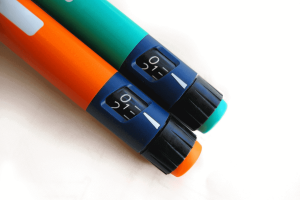Is gluten-free right for me?
If you look around, it’s easy to see the gluten-free diet craze has swept America. Boards on Pinterest are dedicated to healthy, gluten-free meals for the family, while grocery stores are stocked to the brim with gluten-free flours, pastas, rices, and even ice creams and cookies. All this hype may have you wondering how healthy a gluten-free diet actually is and whether or not it’s a good idea for your diabetes.
First things first: What is gluten, anyway?
According to celiac.org, gluten is the name given to the protein that’s found in wheat, rye, and barley. Gluten is the substance that gives food with wheat their substance and shape. Some scientists say gluten acts like a glue, holding the food together.
Gluten is found in most foods we eat every day. According to the American Diabetes Association, you can find gluten in bread, tortillas, cookies, cakes, cereal, crackers, gravy, dressings, and sauces.
So, why is gluten unhealthy?
In the past, a gluten-free diet was only prescribed to people who have celiac disease, a condition where the small intestine is extra sensitive, which makes it hard for people to digest gluten. Now is not the time to worry, though. According to WebMD, only 1 percent of Americans have celiac disease. If you’ve been eating bread and crackers your whole life with no problems, chances are good you don’t have the condition.
If you don’t have celiac disease, there is no reason why you shouldn’t be eating gluten. The protein itself contains no harmful properties and no qualities that can worsen or affect your diabetes.
The gluten-free diet started mainly as a way for people to cut back on unhealthy foods. Because gluten is found in so many of our favorite munchies (think: white bread, muffins, doughnuts, and snack cakes), cutting the ingredient out altogether is what some people have decided is best for them. The truth is, though, there are lots of healthy foods you can eat that contain gluten: Whole wheat bread, whole wheat pastas, granola bars, and couscous are all foods that contain gluten but are also high in fiber and other nutrients that help keep you full and focused.
Is a gluten-free diet right for me?
That’s something for you and your doctor to discuss. However, according to Harvard Health Publications, there really is no reason to go gluten-free unless your body is sensitive to gluten. In fact, you could be missing out on a variety of foods that are part of a healthy diet. Instead, it may be a good idea to look at cutting out some gluten, such as crackers, white breads, and pastries, and replacing them with fresh fruits, vegetables, lean meats, or beans.




